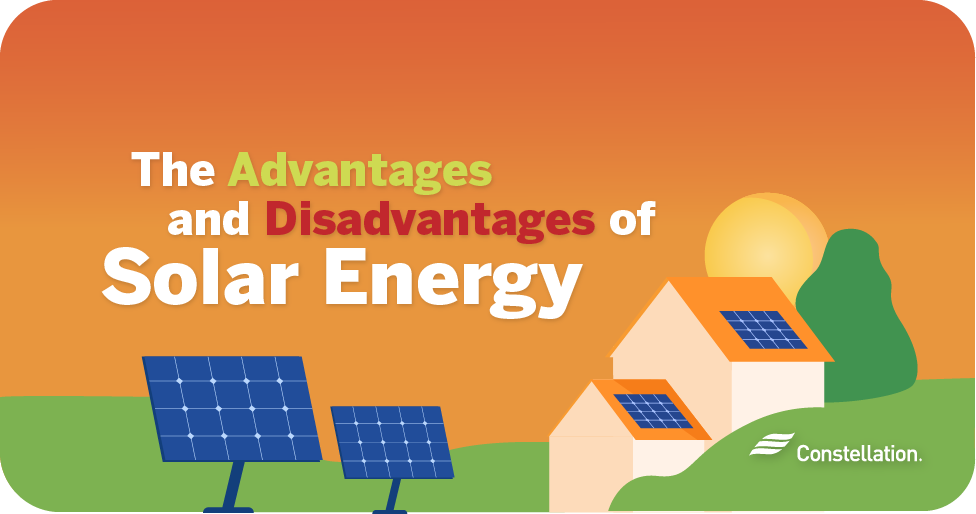Cut Down Energy Bills with Simply Solar Illinois – Learn About Your Options
Cut Down Energy Bills with Simply Solar Illinois – Learn About Your Options
Blog Article
Just How Solar Power Can Assist You Conserve Cash and Decrease Your Carbon Impact
The combination of solar power right into your energy portfolio offers an engaging opportunity for both financial savings and environmental stewardship. As various federal government incentives come to be readily available, the question arises: just how can one successfully browse the first investments and continuous advantages of solar innovation to optimize both economic and environmental gains?
Understanding Solar Energy Financial Savings
While the shift to solar energy often entails a first investment, comprehending solar power savings is vital for homeowners and organizations alike. Solar power systems can substantially reduce electricity bills by taking advantage of the sun's power, converting into substantial long-term monetary advantages. By creating their own electrical power, customers minimize reliance on grid power, which is subject to changing prices. These financial savings can accumulate over time, frequently bring about a quick roi.
In addition, solar energy systems may certify for numerous financial rewards, consisting of tax credit histories and refunds, further enhancing their cost-effectiveness. The accessibility of web metering permits users to market excess power back to the grid, creating an extra profits stream. These factors add to the overall financial savings linked with solar power.

In addition to direct monetary savings, solar power offers the included advantage of raising building worth. Homes outfitted with solar panels are typically much more eye-catching to buyers, as they promise reduced power prices - Simply Solar Illinois. Understanding these components is necessary for anyone considering solar power, as it highlights not just the potential economic gains, but likewise the wider environmental and financial advantages of embracing renewable resource services
First Costs vs. Long-Term Perks
When assessing solar power, it is essential to evaluate the first prices against the lasting advantages. The upfront investment for photovoltaic panels, installment, and related equipment can be substantial, usually ranging from $15,000 to $30,000, depending on the system size and home power requirements. This preliminary expense may prevent some house owners; nevertheless, it is important to take into consideration the possible savings gradually.
When set up, solar power systems can significantly minimize or even eliminate monthly electrical energy bills, leading to considerable lasting monetary advantages. Research studies indicate that homeowners can conserve anywhere from $10,000 to $30,000 over the lifespan of their solar system, typically 25 years. Furthermore, many states use incentives, tax debts, and discounts that can offset preliminary costs, making solar a lot more available.

Lowering Your Carbon Impact
Lowering your carbon footprint is a crucial factor to consider in today's environmentally aware society, and adopting solar power is just one of the most reliable methods to attain this objective. Solar power is a clean, renewable energy that significantly decreases reliance on nonrenewable fuel sources, which are significant contributors to greenhouse gas exhausts.

Additionally, the prevalent fostering of solar technology motivates the development of green tasks and sustains developments in power storage space and performance. The even more individuals and companies invest in solar power, the higher the cumulative decrease in carbon exhausts, cultivating a cleaner ambience for future generations.
Government Incentives and Rebates
Embracing solar energy not only profits the atmosphere yet can additionally lead to substantial economic savings, particularly with the availability of federal government incentives and discounts. Numerous government, state, and local programs are designed to encourage homeowners and businesses to spend in solar power systems, making the shift extra economical.
One of the most noticeable incentives is the Federal Financial Investment Tax Credit (ITC), which allows planetary system proprietors to deduct a significant percent of the installment prices over at this website from their federal taxes. This motivation has been crucial in reducing the upfront expenses connected with solar power systems. Furthermore, several states supply their own tax credit scores, grants, and rebates that can additionally improve financial savings.
Additionally, some city governments supply real estate tax exemptions for solar installations, making certain that house owners do not face increased real estate tax as an outcome of their eco-friendly power investments. Utility companies may also use motivations, consisting of web metering and feed-in tolls, which enable solar power customers to offer excess power back to the grid.
Picking the Right Solar System
Choosing the appropriate solar system is vital for maximizing power effectiveness and economic benefits. The choice hinges on a number of aspects, including energy requirements, spending plan, and offered space. Homeowners need to start by analyzing their electrical energy usage to identify the system size required for optimal efficiency.
Following, think about the different kinds of solar modern technologies readily available. Simply Solar Illinois. Solar (PV) panels are the most usual, transforming sunshine straight right into electrical power, while solar thermal systems concentrate on home heating water. Each type has distinct advantages relying on individual demands
Spending plan factors to consider are also paramount. Initial setup expenses can vary dramatically, so it is very important to compare quotes from several companies and discover financing alternatives. Federal government rewards and discounts can even more decrease the financial concern, making planetary systems much more easily accessible.
Conclusion
The environmental benefits of solar energy contribute to sustainable methods crucial for combating environment adjustment. Government motivations over at this website enhance the expediency of solar innovation adoption, urging a change towards a cleaner, much more economically reliable energy source.
Report this page